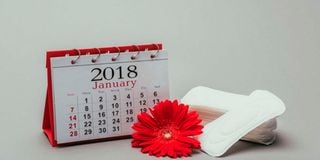Menstruation Hygiene Day: Celebrating and Raising Awareness

Menstruation taboos in some cultures continue to hold women back.
What you need to know:
- The first-ever Menstruation Hygiene Day was celebrated on 28th May 2014.
- In some parts of the world, menstrual hygiene is considered taboo, and women and girls cannot access information and products.
- In many countries, period poverty means girls cannot afford sanitary products, they have to use improvised materials.
Every year, on the 28th of May, Menstruation Hygiene Day is celebrated worldwide in order to break the silence and taboos surrounding menstruation.
In addition, the day provides a much-needed opportunity to discuss the challenges faced by women and girls around the world when it comes to menstruation.
From access to sanitary products and clean water to education and awareness-raising, there is still a long way to ensure that all women and girls have a safe and dignified experience of menstruation.
However, Menstruation Hygiene Day is a major step in the right direction. It is hoped that the menstrual challenges faced by women and girls worldwide will eventually be overcome through continued conversation and action.
The creation of the world's Menstruation Hygiene Day
The idea for a global Menstruation Hygiene Day (MH Day) was first conceived in 2013 by women's health NGO, WASH United. This is a German organisation whose roles include:
- Ensure all people have access to WASH (Water, Sanitation & Hygiene) facilities
- Improve menstrual hygiene management (MHM) education and awareness
- Minimise menstruation shame.
The first-ever Menstruation Hygiene Day was celebrated on 28th May 2014.
Global menstruation challenges that women face
Despite the fact that menstruation is a natural and essential process for women of childbearing age, there are still many challenges faced by women and girls around the world when it comes to managing their periods.
In some parts of the world, menstrual hygiene is considered taboo, and women and girls cannot access the information and products they need to manage their periods safely and hygienically.
This can lead to health problems and social and economic disadvantages. In many countries, period poverty means girls cannot afford sanitary products, they have to use improvised materials.
This can lead to infection and illness and prevent girls from attending school or work. There is also stigma attached to menstruation in some cultures, which leads to discrimination and isolation.
These factors can significantly impact a woman's health, well-being, and education. That is why Menstruation Hygiene Day is so important.
Women and girls worldwide can live healthier, happier lives with better access to information and resources.
Period poverty in Kenya
In Kenya, it is estimated that 65% of girls cannot afford sanitary pads. This means that the majority of women and girls are improvising materials during their periods, which can lead to infection and illness.
In addition, many girls miss school or work because they cannot afford sanitary products. This impacts not only their education and future but also their mental health and well-being.
Several organisations are working to improve access to menstrual hygiene products and education in Kenya.
These non-profit organizations provide sanitary pads to girls in need, as well as educate them about menstrual health and hygiene.
However, there is still a long way to go in terms of reaching all women and girls in Kenya with these vital services.
Teen pregnancy and sanitary towels
Unfortunately, young girls who cannot access sanitary towels are also more likely to get pregnant as they engage in sex with men who give them money for sanitary towels.
Since the start of the pandemic, there has been a significant increase in the number of teenage pregnancies in developing countries.
This is believed to be due to a combination of factors, including period poverty and a lack of access to sexual and reproductive health information and services.
In addition, when schools closed due to the Covid-19 lockdown, the majority of teenagers could not access the government donated sanitary towels.
How you can get involved
There are many ways you can get involved and help make a difference.
- Share information about menstrual hygiene and the importance of good menstrual hygiene management with your friends and family.
- Donate to or volunteer with an organisation working to improve access to menstrual hygiene products and education in developing countries.
- Write a blog post, create a social media post, or make a video about menstrual hygiene and period poverty.
- Encourage your school, workplace, or community group to participate in Menstruation Hygiene Day.
It is clear that period poverty has had a significant impact on the lives of women and girls around the world. By working together, people can ensure that all women and girls have access to the products and education they need to manage their periods safely, hygienically, and with dignity.



